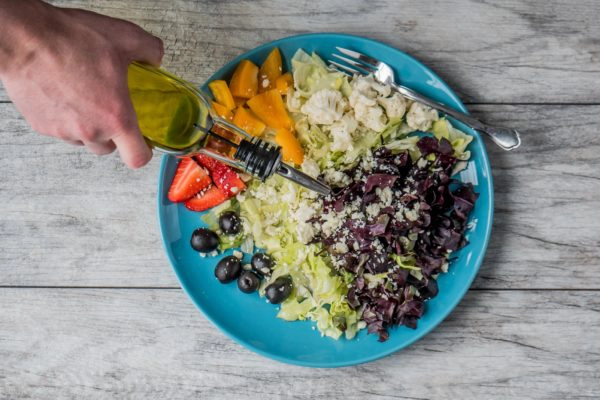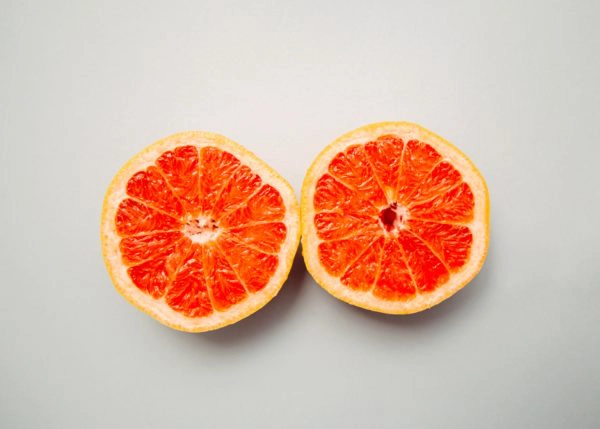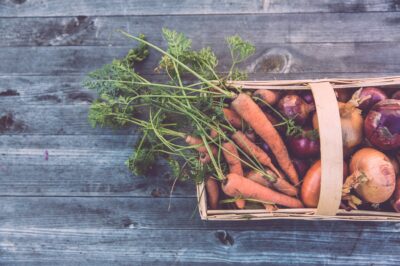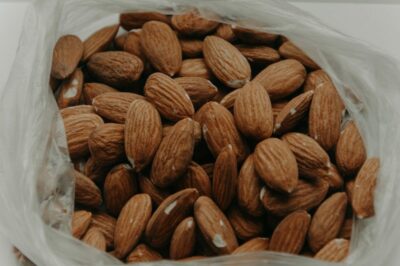Table of Contents[Hide][Show]
The connection between your skin and your diet isn’t a new concept. My mother used to say to me over 30 years ago, “You are what you eat.”
I haven’t exactly turned into an avocado no matter how many of those delicious green bundles of goodness I eat, but I do know that my skin state is directly responsive to how intentional I have been in my diet and lifestyle choices. Perhaps you have noticed a link between your skin and your diet as well?
What determines your skin type?
Consider this: We each have differing combinations of genetics, climates, lifestyles, diets, skin types and our skin needs are uniquely particular as a result.
Your skin is always responding to environmental change, stress, sleep, any prescriptions you’re taking as well as your daily nutrition intake. All of these factors influence your current skin condition.
One of the foundational elements to skin care is discovering your skin type. Once you have this, you can use the diet suggestions below as a guide toward balancing your skin type and nourishing it from the inside out.
Diagnosing your skin
Before you dive into making changes, I feel it is important to encourage you to use any self-diagnosis of your skin type with caution, until a professional esthetician can help you properly diagnose your skin or a dietician can offer more specific dietary guidelines for you based on the unique needs you may have.
To offer a bit of insight into why a professional is strongly recommended consider the following. Sometimes you break out. Sometimes your skin feels dry. Sometimes your skin is balanced and flawless. So, what’s the deal?
You may have self-diagnosed your skin type yet find yourself wondering if your skin type is written in your genetic code, how and why does it keep changing skin types?
Genetics and your skin type
Example: If you are genetically an Oily Skin Type but your skin feels dry, this doesn’t mean you are also a Dry Skin Type. Instead, it can mean you are an Oily Skin Type experiencing a dry skin state. For those that aren’t skin care professionals, it can be difficult to distinguish between skin type, skin states and a reactive condition of the skin.
A great example of this is when oily skin feels dry. It is difficult for the general public to determine if the dryness originates from a lack of water or a lack of oil in the skin.
This can leave you confused on how to label your skin and therefore uncertain how to care for it. Both water-loss and diminished oil production make the skin feel, “dry” but only skin that fundamentally lacks oil is considered a Dry Skin Type. Interesting, right?
The effects of diet on your skin
Ultimately, everything in your body is connected, so a problem with your skin likely mirrors an issue with your diet and lifestyle. Our diets have far greater an impact on our skin than most of us give them credit for.
An imbalanced diet for your skin type can cause many damaged skin conditions like redness, wrinkles, blotchiness, congestion, breakouts, and dryness to name a few. Eating the best foods for your skin type may have the potential to combat these factors.
Choosing the best foods based on your skin type
If you’ve tried dozens of topical remedies, but are still struggling to achieve healthy skin, try incorporating the below foods into your diet, according to your skin type. In addition to positive consumption, an important element in eating for your skin type includes the foods you should limit or avoid altogether.
As you increase recommended foods, try to decrease the consumption of the foods listed at the bottom of the article and watch your skin move even more quickly into balance.

1. Dry skin
Dry, flaky, and cracked skin can be really painful. If you have extremely dry skin, you know what I am talking about. In fact, your skin can look dull and malnourished not only during winters but also in summers.
In contrast, dry skin is lucky because when you get the oil nourishment in balance these skin types typically have flawless looking skin with nearly invisible pores!
Try increasing your intake of the below foods to support your skin’s oil production from the inside out and get that envy-worthy porcelain looking skin.
Best foods for dry skin
• Olive Oil, Sesame Oil
• Berries (all)
• Bananas
• Yellow Bell Peppers
• Pumpkin, Sweet Potatoes
• Salmon, Trout, Halibut, Sardines
• Broccoli, Spinach
• Zucchini
• Eggs
• Avocados
• Almonds, Cashews, Sunflower Seeds, Walnuts
• Coconut Oil
• Flax, Chia, Hemp Seeds
• Aloe Vera

2. Oily skin
Oily skin can show its character in the form of spots, blemishes and pimples as well as visible pores and shine. Causes of the above conditions can include volatile hormones, incompatible cosmetics plus poor diet.
This skin type has a huge perk to counterbalance all the challenges with keeping the oil in check; oily skin ages significantly slower the other skin types due to all the extra oil nourishment within the skin. Wonderful, right?
To balance the shine and breakouts of oily skin try consuming the below, avoiding the items at the bottom of the article all together to get your skin clear and glowing an envy-worthy amount.
Best foods for oily skin
• Almond Milk / Coconut Milk
• Carrots
• Sweet Potatoes
• Butternut Squash
• Pinto Beans
• Quinoa
• Spinach, asparagus and broccoli
• Blueberries, Blackberries, Dried Dark Cherries (no sugar added)
• Green Tea
• Grapefruit
• Watermelon
• Cucumber
• Onion
• Turmeric
• Ginger

3. Normal skin
We know there’s no such thing as normal, but a normal skin type has a characteristic even tone and is not overly dry or oily. From time to time you may experience oiliness on your chin, nose and forehead or dryness on your cheeks, lips and around your eye contour area.
Generally, this skin type can handle a little bit of everything. Everything in moderation along with a consistent routine will keep this easy to care for skin type at its most optimum glowing state.
Best foods for normal/combination skin
• Broccoli, Kale, Swiss Chard
• Cabbage
• Arugula, Spinach
• Carrots
• Wild-caught Salmon, Trout and Sardines
• Chicken Eggs
• Olive Oil
• Quinoa
• Brown Rice Millet
• Fermented Food

4. Sensitive skin
Sensitive skin has fine pores, can be easily irritated and is prone to redness because, for one reason or another, the barrier function of the skin has been compromised. Sensitive skin is often genetic and can also react to poor diet, changes in weather, hormonal imbalance and certain cosmetic products.
Sensitive skin must be treated with the correct skin care products that are gentle and soothing to heal your skin and relieve your symptoms.
If you’re blessed with sensitive skin that reacts to everything, take heart to be gentle with yourself: caring for sensitive skin internally with calming foods and externally with gentle care will give the most balanced, clear and soothed skin results.
Best foods for sensitive skin
• Asparagus
• Kale
• Tomatoes
• Olive Oil
• Flaxseed
• Oranges
• Green Tea
• Avocado
• Apples
• Berries
In addition to the foods you want to proactively seek out, it is recommended that all skin types experiencing an imbalanced state try avoiding the following items.
Top foods to avoid:
• Wheat
• Dairy
• Sugar
• Soy
• Processed foods
I have tested out the theory that cow dairy triggers inflammation and acne in my skin. It is a repeatedly proven fact for my skin at this point. I still eat dairy, at moderate to minimal amounts, but now I am not frustrated or confused about how I get the breakout when it comes.
In contrast, I increase water intake and reach for oily skin balancing foods, like green tea and cucumbers, when I have eaten dairy, to balance out the inevitable inflammation and acne flare-ups. This is a great example of how the above knowledge could empower you to eat for your skin type and get optimal results without having to eliminate the foods you love completely.
I hope this information also empowers you and offers some insights into new healthy food changes you can try at home to get your skin into an optimum healthy state with glowing results!
Let me know in the comments below if you have any positive skin changes when eating for your skin type.
Sources:
6 Foods to Avoid For Oily Skin and What to Eat Instead
25 Best Foods For Your Skin
Eat For Your Skin Type
Eat Your Way to Gorgeous Skin: Best Foods for Every Skin Type
The Foods You Should Be Eating For Your Skin Type
Eat Right for Your Skin Type
This Is What You Should Eat According To Your Skin Type
This is how to eat for your skin type
What to eat if you’ve got dry skin
What to eat if you’ve got oily skin
Best Diet For Dry Skin
10 Grocery Store Items for Dry Skin
How to Eat for Your Skin Type
Foods you should eat to help your skin type
SKIN CARE 101 SKIN TYPES
Foods to Avoid for Sensitive Skin
12 FOODS TO EAT TO SOOTHE SENSITIVE SKIN
A Diet for Sensitive Skin
Foods For Oily Skin: What To Eat And Avoid








Thank you for this information. I always have trouble with my skin and I don’t know if it’s because of what I use. Maybe it’s time to start from the inside out.